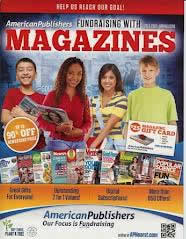 In order to raise money for essential educational resources such as computers, software, building extensions, libraries and curriculum materials, schools have to raise extra funds. They do this with food drives, raffles, dances, fetes and fun runs, as well as hiring out facilities. They also raise raise funds by selling commercial products such as chocolate, sweets, drinks, sweet baked goods, magazines, and other items, often door to door or at fund-raising events.Schools also increasingly raise money through sponsorship deals and marketing arrangements such as the leasing or selling of school land and sale of advertising space.
In order to raise money for essential educational resources such as computers, software, building extensions, libraries and curriculum materials, schools have to raise extra funds. They do this with food drives, raffles, dances, fetes and fun runs, as well as hiring out facilities. They also raise raise funds by selling commercial products such as chocolate, sweets, drinks, sweet baked goods, magazines, and other items, often door to door or at fund-raising events.Schools also increasingly raise money through sponsorship deals and marketing arrangements such as the leasing or selling of school land and sale of advertising space.
It is as if under-funding of schools is part of a corporate strategy to enable marketers better access. At the very least corporate ‘sponsorship’ of school activities and donation of school resources enables the under-funding of schools by governments to continue.
Almost every school in the US participates in fund-raising activities that involved selling merchandise in schools or in the community. However corporations take advantage of school fundraising efforts in other countries too.
 McDonald’s McTeacher nights involve teachers, principals and school administrators serving as McDonald’s behind-the-counter employees for a night in return for 20-25 percent of takings going to their school.
McDonald’s McTeacher nights involve teachers, principals and school administrators serving as McDonald’s behind-the-counter employees for a night in return for 20-25 percent of takings going to their school.
In Australia, too, McDonald’s organises “fun nights” for school students and their parents when 25 percent of the night’s earnings go to the school. It also organises cheeseburger days when burgers are sent to the school at a discount price and the school can sell them at the usual price and keep the difference.
In Canada schools get free gym equipment for allowing Ronald McDonald to visit their school to talk to children about healthy living.
 Krispy Kreme provides cheap doughnuts to hundreds of schools in Australia and many more in the US for fundraising purposes.
Krispy Kreme provides cheap doughnuts to hundreds of schools in Australia and many more in the US for fundraising purposes.
Other retailers offer a percentage of sales receipts to schools when parents sign up. These include Target and Office Depot. McDonald’s, Kentucky Fried Chicken (KFC) and Domino’s Pizzas have also given schools a portion of profits from fast food sales thereby encouraging students to coerce parents and others to buy pizzas or hamburgers in order to raise money for their schools.
 American Publishers, a unit of Hearst Corporation, bills itself as a fundraising organisation. Schools make their students available to American Publishers marketers at a mandatory assembly during school hours, taking time out from classes. At the assembly students are encouraged to sell American Publishers' magazines. In return American Publishers offer 40% of the retail magazine price to participating schools when the purchaser identifies the school when they order the magazines.And "For every three or more magazines purchased by the same household,American Publishers will have a tree planted in honor of your school/organization".
American Publishers, a unit of Hearst Corporation, bills itself as a fundraising organisation. Schools make their students available to American Publishers marketers at a mandatory assembly during school hours, taking time out from classes. At the assembly students are encouraged to sell American Publishers' magazines. In return American Publishers offer 40% of the retail magazine price to participating schools when the purchaser identifies the school when they order the magazines.And "For every three or more magazines purchased by the same household,American Publishers will have a tree planted in honor of your school/organization".
Webb Hall, the owner of A+ Fundraising, an affiliate of American Publishing, claims on his LinkedIn page that he conducts "sales presentations with an attendance of up to 1,000 at school assemblies with an emphasis on motivating and equipping students and other markets to reach goals" and in his previous position as sales manager at QSP/Reader's Digest he "facilitated 75 large-scale sales presentations annually at student assemblies".
 According to Great American Opportunities, which acquired QSP in 2012 and incorporates magazine fundraisers, cookie dough fundraisers, discount card fundraisers and gift brochure fundraisers:
According to Great American Opportunities, which acquired QSP in 2012 and incorporates magazine fundraisers, cookie dough fundraisers, discount card fundraisers and gift brochure fundraisers:
Most students do not like to participate in fundraisers, that's a fact. But Great American offers the best products, the best prizes, a motivational video tape and a professional fundraising consultant to help your group raise the most money possible. When students understand the need for the money and they are properly motivated and rewarded for their participation, they will help out.
If you have any examples or updates you would like to contribute please email them to me and I will add them here. Please give references for where you sourced the information.